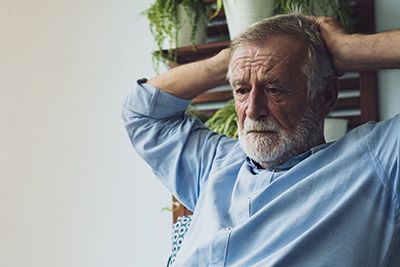In times of chaos, we search for stability in our lives. We plan ahead to provide safety and comfort to our families. We strive to offer assistance to our communities. As we continue to live in the age of global pandemics like coronavirus COVID-19, we must rely on thoughtful estate planning to provide stability to our lives, financial safety to our families and charitable assistance to our communities.
In 2020, we introduced our first monthly installment of articles addressing the theme of controlling chaos with effective estate planning in which you read about using estate planning resources as an effective way to prepare for unexpected changes in life. We followed that with a second installment on preparing for unexpected injury or illness, cautioning not to be "the person who, once the chaos of a catastrophe strikes, looks back and says: ‘I was not prepared for this.'"
No one at the time, however, could have anticipated the circumstances in which the entire world finds itself currently — quarantined to our homes; restricted from our workplaces; fearful for our elderly and immunocompromised populations; and uncertain of our social and economic futures. Indeed, these are unexpected and difficult days that require sacrifice, patience and cautious planning for the future on both a global and an individual scale — very much as is required for a healthy estate plan.
Chaos presents itself in many forms

In the spirit of our series on controlling chaos with estate planning, it is appropriate that we stop to carefully consider the relevance of the coronavirus in our individual lives and in the future lives of our families. Of course, our immediate concern is for our physical health and safety. This is as serious a pandemic as we have ever known, and it has already had catastrophic consequences. However, we confidently trust that if we are careful and cooperative, this condition will pass. When it does, it is particularly important that we respect and appreciate the parallel lessons to be learned from our current experiences and not simply sigh in relief and resort to our familiar ways. Just as the exercise of flying on an airplane changed forever after Sept. 11, 2001, our lives will significantly and permanently change after the coronavirus is well behind us. At least, they should.
One of the changes that should occur in your life after you bravely stave off the coronavirus should be to re-evaluate your estate plan so as to prepare for the next unforeseen chaos in your life. Coronavirus is serious. But it is just one of many catastrophic events and chaotic changes that you will confront in your life. You will experience another "coronavirus-like event" in your life at some point. But it may present itself as:
- A heart attack
- Bankruptcy
- Sudden illness
- A tragic accident
- Family crisis
- Retirement
- Disability
- Long-term illness
- Divorce
- Perhaps even "coronavirus II"
In the broad, estate-planning picture of your family's financial future, these are all the "coronavirus" — suddenly and unforgivingly introducing itself into your life again, but simply presenting as a different form of chaos. If we were to give these chaotic events a name, we might refer to them as "corona-chaos."
We may only be at the beginning of our experience with the chaos we are calling "coronavirus." But we have already learned, and continue to learn, valuable lessons to help us prepare for chaos in our lives and respond with thoughtful, patient and stable estate planning for our futures.
Consider the following parallel lesson from coronavirus that may be applicable to your approach to estate planning, especially as you confront your own unexpected but inevitable "corona-chaos" in your life.
"Corona-chaos" can strike anyone and everyone
If there is one undeniable lesson to be learned from coronavirus, it is that it can strike anyone and everyone.
Now consider how many times you have observed a car accident on the way to work, a catastrophic event in another country shown on the news, or a tragic and unexplained illness that befalls a youngster or infant child, and thought:
- "That won't happen to me — I am a safe driver."
- "Thank goodness we don't have natural disasters here."
- "I am not worried — there are no illnesses that run in my family."
Without even realizing it, you have probably thought these things about as many times as you had thought during the first days of the coronavirus:
- "I don't need to stay inside, I feel fine."
- "It's OK — I'm not around that many people."
- "It's not going to be as serious as they say it is."
As cliché as it may sound, we are learning the lesson that "we just never know." Chaos may not happen often, and you may think it only happens to others. But "corona-chaos" can and does happen to anyone and everyone. It is happening to you now.
So apply this lesson to your current approach to your estate plan. How many times have you thought:
- "I don't have to worry about estate planning yet — I am still young."
- "We've never talked about it, but I'm sure my family knows I wouldn't want to be kept on life support."
- "Our children will not want to sell our family business — they will continue to run it and then pass it on for their children to run."
- "I won't get laid-off — I've worked there for years."
- "I'm never sick."
Chaos can strike anyone and everyone.
As we deal with this "corona-chaos," should should take time to consult with your estate planner and:
- Make a will
- Execute an advance directive
- Consider your need for a trust
- Learn about durable powers of attorney
- Discuss your preparedness for retirement
- Take seriously the importance of doing your estate planning now
Even the estate planners and lawyers that you may visit to discuss these end-of-life estate-planning resources are experiencing their own "corona-chaos" in their law firms and businesses. They are learning that in the age of pandemics, they must be able to service their clients online, seamlessly and confidentially, with virtual technology and digital files. You can be sure that when coronavirus runs its course:
- Businesses and professionals will be incorporating virtual technologies for conducting "virtual business" from now on.
- Courts will grapple with the possibility of conducting criminal and civil hearings online.
- Employers will be prepared to enable employees to be just as productive from their homes as from the office.
- Every parent of a school-aged child in the country will be armed with new and creative ways to entertain small children inside the house for weeks at a time.
- And, yes, every home in America will have a few extra rolls of toilet paper stored in the closet.
Whatever the changes may be, everyone in the world will learn something about coronavirus and how it can affect entire global economies just as suddenly and completely as it can affect the daily routines of every household in your community.

You can be prepared
You must recognize and take seriously the fact that deadly viruses of a global magnitude do not happen often, but they do happen. They can happen to anyone. They can happen to everyone.
The chaos in your financial life is no different, except that there are countless resources readily available to you that you can use right now so that you are prepared when your "corona-chaos" next presents itself — in whatever form that may be. You can be prepared.



